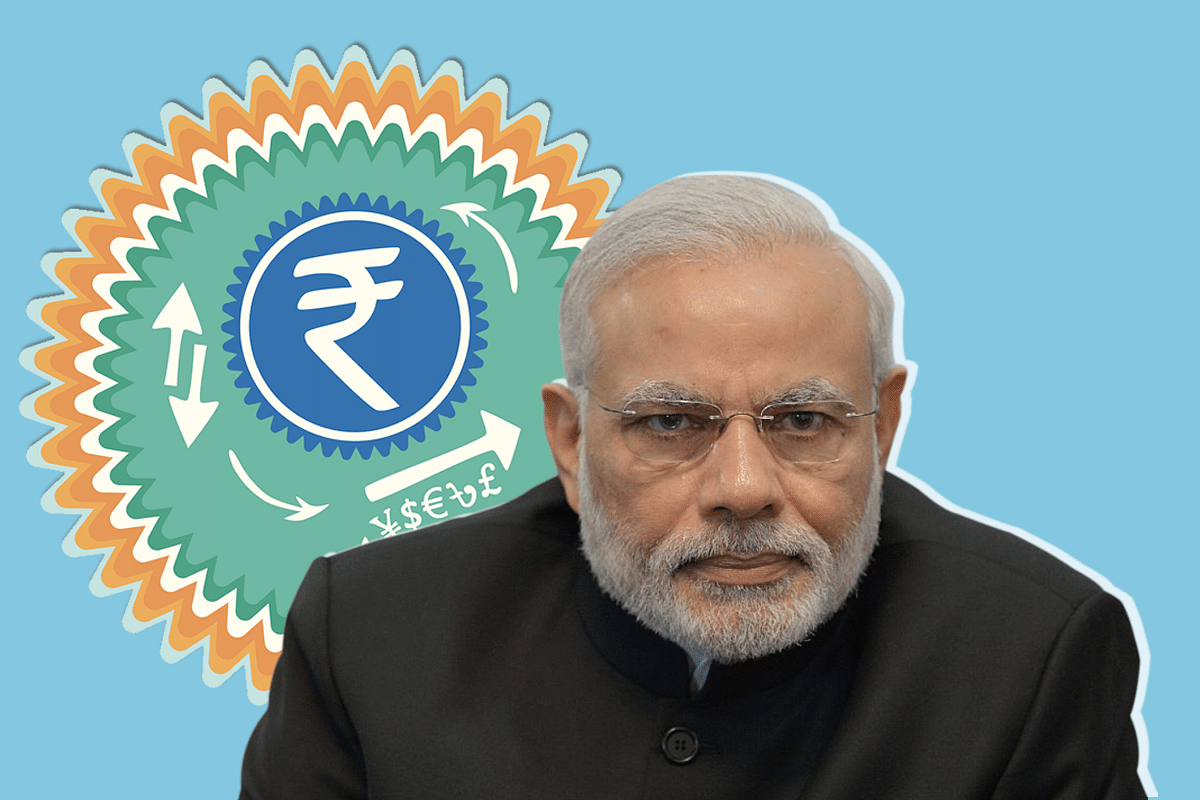Economy
Modi 2.0 Needs A Black Money Amnesty Scheme Version 2.0 To Raise Rs 2-3 Lakh Crore
- The government could simultaneously offer multiple schemes for voluntary income declarations, including the possibility of investing in bankrupt companies.
- Here are four schemes that could be tried out to see which one works best.

Prime Minister Narendra Modi
With the Narendra Modi government reducing effective tax rates to the 15-25 per cent range, with the lower rate applicable to manufacturing units set up after 1 October, a new possibility has opened up for more than making up the revenue losses through a black money amnesty scheme.
In its first term, Modi announced three amnesty schemes that barely scratched the surface in terms of the total quantum of voluntary disclosures. In 2015, we had the Black Money (Undisclosed Foreign Income and Assets) and Imposition of Tax Act, followed by two more – the Income Declaration Scheme (Black Money and Imposition of Tax Act), and the Pradhan Mantri Garib Kalyan Yojana (PMGKY) – in 2016, the last one being announced in the midst of the demonetisation exercise.
But, given the very high tax rates (normal tax, plus penal rates, which added up to more than 50 per cent in most cases), total declarations under the three schemes were less than Rs 80,000 crore, and the tax collections therefrom even lower.
The logic of penal rates rising well above the halfway mark of incomes declared was decided more by moral principles than realism. The government did not want to be seen as helping tax evaders by giving them a sweet deal that would have upset more honest taxpayers.
But that logic no longer endures, for when tax rates are brought down for everybody, the penal rates can also be less extortionate. When the regular tax rate was 35 per cent or thereabouts, an additional penal provision of 10-15 per cent automatically makes the tax rate over 45 per cent. But at a blended new tax rate of 20 per cent (the mid-point between the new 15 and 25 per cent tax rates for new and existing manufacturing companies), penalties can be lower.
Assuming a 15 per cent penal rate over and above the mid-point of 20 per cent, we actually get a 35 per cent tax rate, including penalties, for voluntary disclosures of black wealth accumulated in India or abroad.
At 35 per cent, many more would be willing to make a clean breast of past misdemeanours provided they get immunity from prosecution – which anyway is too long-winded to be meaningful in the Indian context.
We need a new Income Declaration Scheme, Version 2.0, in Modi’s second term.
At least four schemes, along the lines below, could be tried out to see which one works best.
One, a straightforward 35-40 per cent flat tax on concealed income declared, no questions asked.
Two, a zero-coupon perpetual bond that will be listed, but offered for bids with a minimum premium of 30 per cent above the face value. These bonds can then be used by other buyers in the open market to continue disclosing black wealth without fear of prosecution.
Three, repayments of overdues to banks in full can be allowed from undisclosed sources, subject to a minimum tax of 10 per cent (or whatever sounds reasonable).
Four, purchase of any bankrupt company from the National Company Law Tribunal, provided the resolution process has no buyers and the asset is marked for liquidation. A price of two to three times (or even four times) liquidation value can be allowed as investment from undisclosed sources.
There could be other variants, but if enough flexibility is given over rates and schemes, the Modi government may find that it can garner either more taxes or obtain free capital (ie, with no interest cost) that will add up to Rs 2-3 lakh crore. If it works, the scheme can be renewed every year with different tax rates.
Idle money left abroad should be put to good use to build infrastructure, which is starved of resources.
Introducing ElectionsHQ + 50 Ground Reports Project
The 2024 elections might seem easy to guess, but there are some important questions that shouldn't be missed.
Do freebies still sway voters? Do people prioritise infrastructure when voting? How will Punjab vote?
The answers to these questions provide great insights into where we, as a country, are headed in the years to come.
Swarajya is starting a project with an aim to do 50 solid ground stories and a smart commentary service on WhatsApp, a one-of-a-kind. We'd love your support during this election season.
Click below to contribute.
Latest